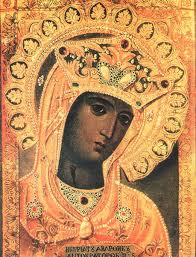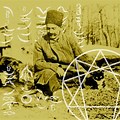










Who Was Potiphar in the Bible?
Proof that God even used slave-owners to accomplish His will
:max_bytes(150000):strip_icc():format(webp)/06.25.14Potiphar-56a096a05f9b58eba4b1d133.jpg)
The Bible is full of people whose stories are interconnected with the overarching story of God's work in the world. Some of these people are major characters, some are minor characters, and some are minor characters who had major parts to play in the stories of the major characters. Potiphar is part of the latter group.
Historical Information
Potiphar was involved in the larger story of Joseph, who was sold as a slave by his own brothers around 1900 B.C.—that story can be found in Genesis 37:12-36. When Joseph arrived in Egypt as part of a trade caravan, he was purchased by Potiphar for use as a household slave.
The Bible doesn't contain a lot of detailed information about Potiphar. In fact, most of what we do know comes from a single verse:
Meanwhile, the Midianites sold Joseph in Egypt to Potiphar, one of Pharaoh’s officials, the captain of the guard.
Genesis 37:36
Potiphar's Story
Joseph's arrived in Egypt under poor circumstances after being betrayed and abandoned by his own brothers. However, the Scriptures make it clear that his situation improved once he began work in Potiphar's household:
Now Joseph had been taken down to Egypt. Potiphar, an Egyptian who was one of Pharaoh’s officials, the captain of the guard, bought him from the Ishmaelites who had taken him there.
2 The Lord was with Joseph so that he prospered, and he lived in the house of his Egyptian master. 3 When his master saw that the Lord was with him and that the Lord gave him success in everything he did, 4 Joseph found favor in his eyes and became his attendant. Potiphar put him in charge of his household, and he entrusted to his care everything he owned. 5 From the time he put him in charge of his household and of all that he owned, the Lord blessed the household of the Egyptian because of Joseph. The blessing of the Lord was on everything Potiphar had, both in the house and in the field. 6 So Potiphar left everything he had in Joseph’s care; with Joseph in charge, he did not concern himself with anything except the food he ate.
Genesis 39:1-6
Potiphar's Story
These verses probably tell us more about Joseph than they do about Potiphar. We know that Joseph was a hard worker and a man of integrity who brought God's blessing into Potiphar's house. We also know that Potiphar was smart enough to recognize a good thing when he saw it.
Sadly, the good vibes didn't last. Joseph was a handsome young man, and he eventually caught the attention of Potiphar's wife. She attempted to sleep with him many times, but Joseph continually refused. In the end, however, the situation ended badly for Joseph:
11 One day he went into the house to attend to his duties, and none of the household servants was inside. 12 She caught him by his cloak and said, “Come to bed with me!” But he left his cloak in her hand and ran out of the house.
13 When she saw that he had left his cloak in her hand and had run out of the house, 14 she called her household servants. “Look,” she said to them, “this Hebrew has been brought to us to make sport of us! He came in here to sleep with me, but I screamed. 15 When he heard me scream for help, he left his cloak beside me and ran out of the house.”
16 She kept his cloak beside her until his master came home. 17 Then she told him this story: “That Hebrew slave you brought us came to me to make sport of me. 18 But as soon as I screamed for help, he left his cloak beside me and ran out of the house.”
19 When his master heard the story his wife told him, saying, “This is how your slave treated me,” he burned with anger. 20 Joseph’s master took him and put him in prison, the place where the king’s prisoners were confined.
Genesis 39:11-20
Some scholars believe Potiphar spared Joseph's life because he had doubts about the accusations leveled by his wife. However, there are no clues in the text that help us decide this question one way or another.
In the end, Potiphar was an ordinary man who did his duty in service to Pharaoh and managed his household in the best ways he knew how. His inclusion in Joseph's story may seem unfortunate—perhaps even a slight against God's character since Joseph remained faithful in his integrity throughout his enslavement.
Looking back, however, we can see that God used Joseph's time in prison to forge a connection between the young man and Pharaoh (see Genesis 40). And it was this connection that saved not only Joseph's life but the lives of thousands of people in Egypt and the surrounding regions.
- Reference: By Sam O'Neal
Articles-Latest
- Koran burning conviction sparks fury as blasphemy law 'returns to UK'
- Robert Francis Prevost - Pope Leo XIV
- Pope Francis' death follows recent health challenges. Here's what we know about how he died.
- Easter April 2025 - international Celebrations
- The Rule of the twelve psalms -Worthy is the Lamb
- Religion in Africa Before Christianity and Islam
- 6 The Origin of Yahweh
- Dumo Di Milano
- What Did the Crow Tribe Believe In: Discover The Beliefs!
- 7 Reasons Historic Christianity Rejects the Book of Enoch
- 8 Breathtaking Mountain Monasteries Around the World
- Ethiopian Bible is oldest and most complete on earth
- Muhammad Muhammad was a prophet and founder of Islam.
- World Day of the Poor – SVP Christmas Campaign 2024
- Pope Francis to open 5 sacred portals on Christmas Eve — for a ritual that’s never been done before
- The 144,000 in Revelation
- Over 73 dead bodies 'used for meditation', 600 crocs in a pond, found in two Thai temples
- Occultism: Western Occult Tradition
- What is a Mudra
- Blood Sacrifices: Ancient Rituals of Life and Death
Articles-Most Read
- Home
- Let There Be Light
- Plants that feel and Speak
- The Singing Forest
- The Singing Forest-2
- Introduction
- Meditation
- Using Essential Oils for Spiritual Connection
- Heaven Scent
- Plants that Feel and Speak-2
- Purification
- Making the Spiritual Connection
- Anointing
- Essential Oils: The unseen Energies
- The Sanctity of Plants
- The Aroma Of Worship - Introduction
- The Aroma Of Worship-Foreward
- Methods Of Use
- Spiritual Blending
- Handling and Storage






